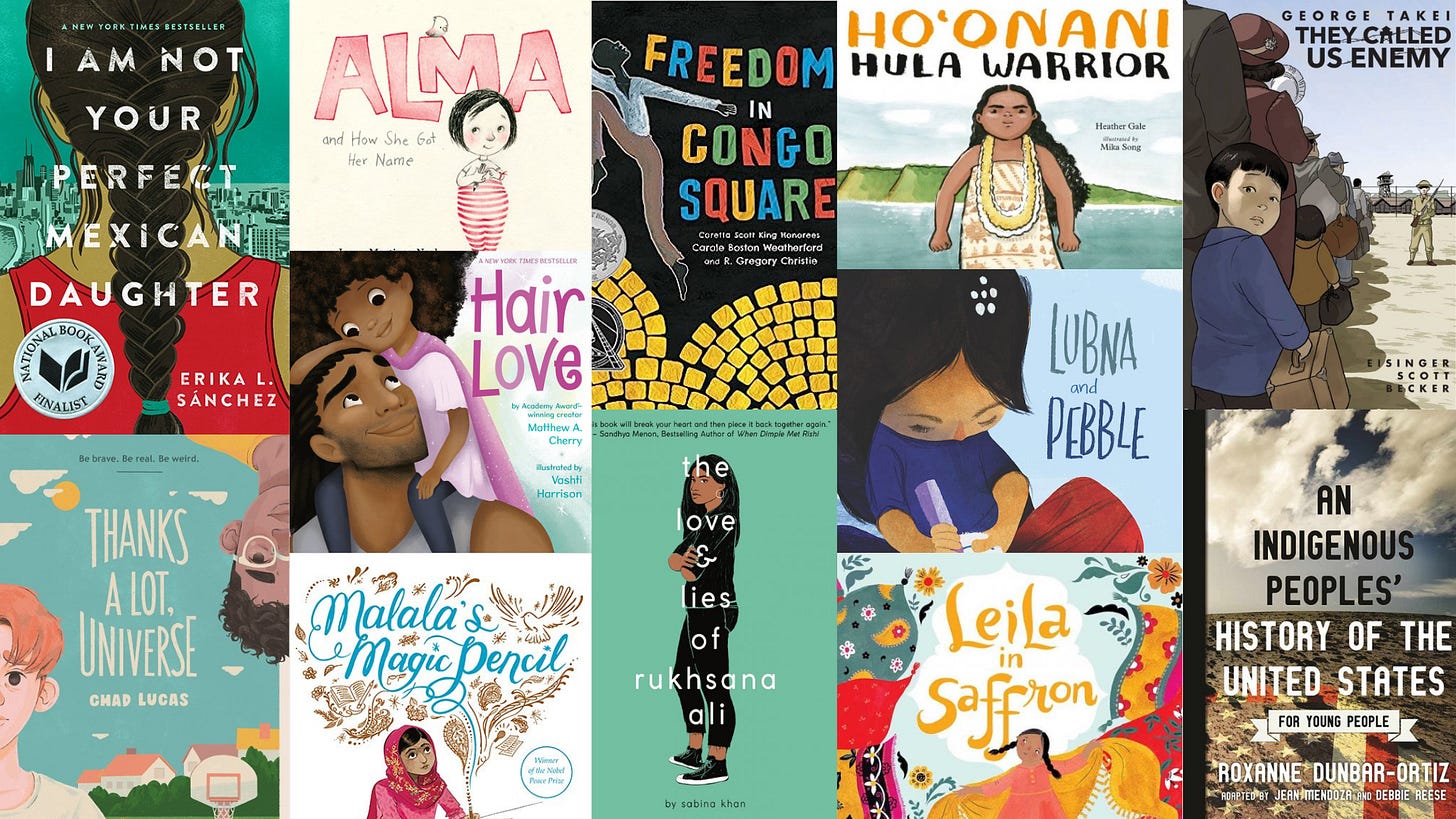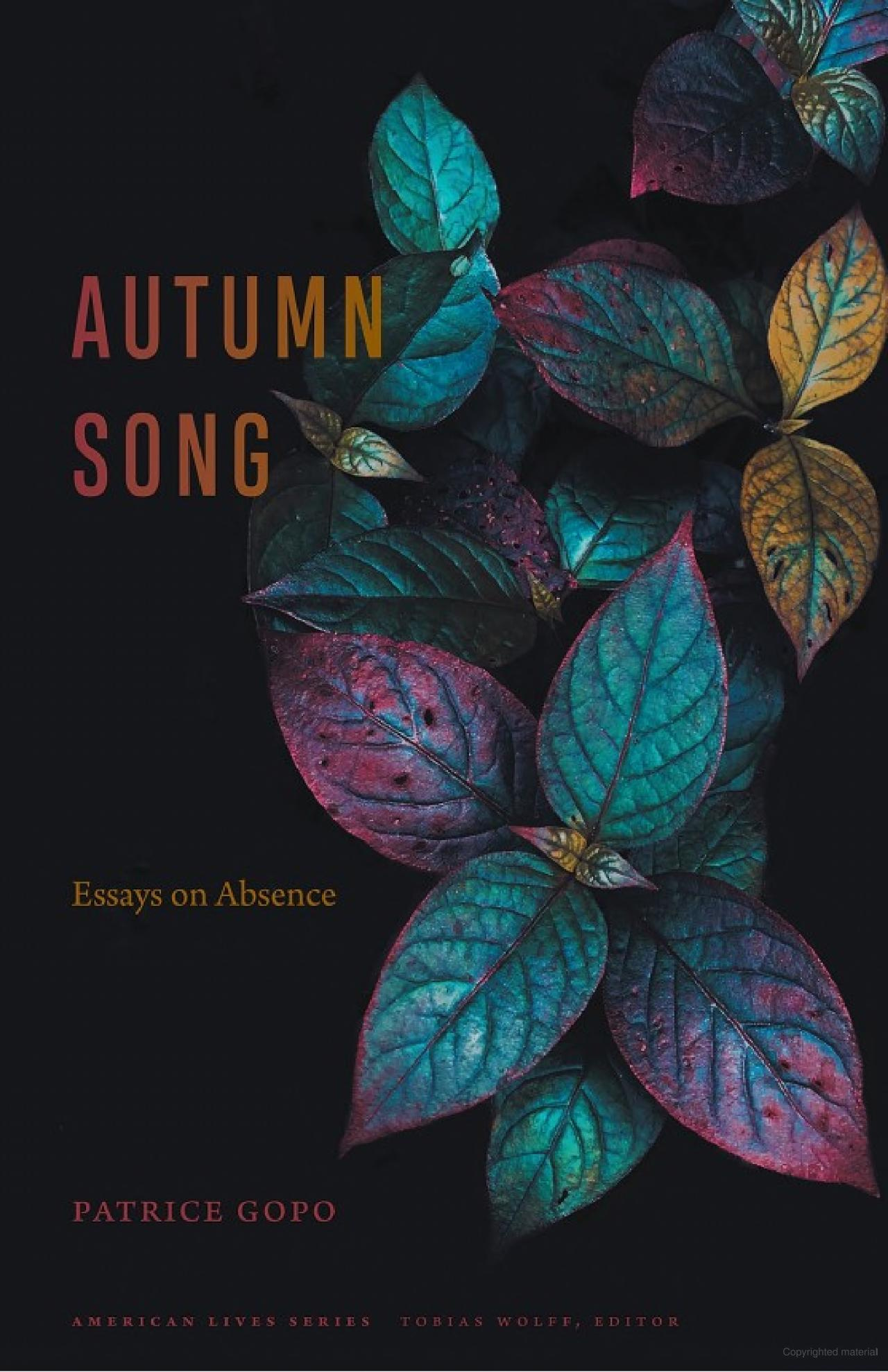In this issue: writing workshops, prompts & responses; retreats & writing rebirth; manuscript progress, rejection & resubmission; epistolaries & erasure; contests; banned books & more!
prompt of the month
“The maple tree in my front yard tells the silent story of the passing seasons.”
In this fall’s workshop sessions I offered this first line from Patrice Gopo’s Autumn Song: Essays on Absence. The collection—published by the University of Nebraska Press in their American Lives Series, edited by Tobias Wolff—invites readers into:
“one Black woman’s experiences encountering absences, seeing beyond the empty spaces, and grasping at the glimmers of glory that remain. In a world marred with brokenness, these glimmers speak to the possibility of grieving losses, healing heartache, and allowing ourselves to be changed.”
The above haiku and monoprint was made by an ongoing workshop participant, Adrienne Momi, who periodically creates multimedia artist books from prompts.
Read more samples by workshop participants in Writing Prompts & Responses!
homecoming
Fall writing workshops launched just two weeks after my wife and I moved into a new rental upon our return from Hokkaido, Japan where we hiked in six national parks, soaked in a variety of volcanic hot springs, and indulged in plenty of tastebud-popping cuisine. Eighteen women writers registered (15 returning, 3 new) for the 26th & 27th series of From Memory or Imagination that I’ve facilitated since March 2020.
“It feels like coming home” is how a new participant described the first session.
After a decade in other Amherst Writers & Artists workshops she’d taken a 10-year hiatus from AWA. I feel that same way each time I begin a new session. It’s like a (happy) family reunion with familiar voices along with some new additions bringing fresh energy and styles into the mix. I delight in the creative process of selecting prompts, practicing deep listening, and holding sacred space for writers to flourish.
New workshops start in January. Curious? Contact me, or fill out an Inquiry Form.
the power of writing together
That’s the theme of this year’s Professional Development & Writing Retreat, an annual conference for AWA-certified workshop leaders, held in person and online. Anyone can attend the keynote tomorrow, September 30 by Ellen Bass, celebrated American poet and author of The Courage to Heal. The title of her address is Transforming Trauma through Art:
“Her talk will be of interest to anyone writing their way through difficult subject matter, or finding traumatic material surfacing in their writing.”
Fill out a Registration Form with payment & click “Just Ellen Bass Keynote ($10).”
writing rebirth
I recently attended Rebirth Your Writing (Memoir Large & Small) a 5-day virtual intensive with Allison K Williams and Dinty W. Moore. In addition to craft lessons and writing seminars on topics such as book structure and flash essays, the duo offered live editing of first pages. Although my manuscript wasn’t (randomly) selected, I did have the opportunity to read my first lines aloud for 60 seconds after two small-group feedback sessions, with immediate and enthusiastic reactions in the “chat.” Showing up daily for writing exercises and revisiting the manuscript I’d set aside for two months while moving and traveling helped me to dip my toes back in the water.
an encouraging note
In April I’d submitted a book proposal with six sample chapters of my memoir in progress, Just Some Things We Can’t Talk About, to Crux: the Georgia Series in Literary Nonfiction (University of Georgia Press). Although it was declined, I was thrilled to receive this small note of encouragement from the acquisitions editor Beth Snead:
“Unfortunately, we have decided against the possibility of pursuing publication. I found so much to admire here but of the many proposals that we receive for the series, we must select only that we feel best fit the vision of our list. We wish you well with your work, and with finding a suitable publisher.”
Next up: in addition to following my own road map for restructuring my book, I plan to create a submissions schedule for some 60 small presses (such as Acre Books) & 25 university presses or their imprints (such as Curbstone Books at Northwestern University Press, from which I recently purchased As If She Had A Say), much of which I’ve compiled in a spreadsheet with submission windows, sub guidelines, sample titles, and what particular presses or editors are looking for in a manuscript.
rotating door of (re)submissions
“Roadside Markers”—rejected half a dozen times until it was selected as one of 15 finalists in Midway Journal’s -1000 Below: Flash Prose and Poetry Contest, judged by Jennifer Tseng—was not ultimately a winner. Last week I lightly revised the piece and sent it to Dorothy Parker’s Ashes as well as the Gordon Square Review, which previously included an encouraging note with their rejection of "Saybrook Says Goodbye":
“While we found much to admire in your submission, we regret that we are unable to accept it for publication. We always receive far more submissions than we are able to accept, and as a result, we inevitably have to pass on a lot more work than we'd like. Please note, however, that we did take special notice of your submission, so we'd love to read more of your work in the future.”
As for that essay, I plan to submit it to Months to Years, an online mag welcoming previously unpublished nonfiction that explores mortality, death, and dying-related topics and whose COVID Flash section I highlighted in my Longreads article, “Stories of Quarantine and Upheaval: A Reading List on the Power of Personal Narrative.”
Lydia Mathis, Editorial Fellow at A Public Space (where I wasn’t selected for a Writing Fellowship among 1500 applicants), sent this personalized response to "Dissolution," an epistolary essay compiled from my father’s diaries in addition to a few letter and journal excerpts of my mother’s that document the demise of their marriage (twice):
“It was wonderful to find your piece among the submissions to our special Open Call. I'm grateful to have had the opportunity to read your work. I'm sorry to say in the end your submission was not selected for the portfolio, but I found something very special in your writing. The writing in this piece was strong and I admired the structure. I hope you will keep A Public Space in mind for future work.”
Dang. Rejection stings, but all these personalized notes make it so much sweeter.
epistolary erasure
Reader comments continue in response to my July Lit Mag News post, Accepting Editorial Suggestions as a Path to Success, such as poet & playwright
:“I am reading this article with enthusiasm, as I've been mulling what to do with some recent personal––you came close, submit again soon, we mean it––rejections. The specific examples here of how to respond and make sense of these editorial comments is hugely helpful…”
Dumar, who recently published her excellent craft essay “The Paradoxical Art of Epistolary Erasure” in The Artisanal Writer, noted that engaging with the editor, rather than dismissing their feedback, helped fit the piece to the publication’s needs. In it she examines creative decisions made when producing a collection of epistolary erasure poetry based on a portion of her mother’s mid-50s love letters to her father:
“Erasure is a literary practice of paradox—revitalizing what might otherwise be devalued or thrown away, hidden, forgotten, or buried. This is why many writers aptly describe erasure as a practice of excavation.” ~ Kelly DuMar
In turn, gleaning a lot from DuMar’s article, I noted that any process of selection, while not necessarily a direct act of erasure, is one of “repurposing and reclamation.”
As for my own epistolary essay, I plan to submit it to the Generations (Family) section of Pangyrus for a print issue on the theme “Left Unsaid” (deadline Oct 15):
“We like the phrase's suggestion of mystery, innuendo, high stakes, and emotional conflict. Sometimes what's left unsaid is the cause of pain, sometimes it's the source of power.”
contest awards & prizes, oh my
Looking for a place to send your poetry or prose? Check out these upcoming contests:
Cutbank Big Sky, Small Prose: Flash Contest (Oct. 15)
New Letters Editor’s Choice Award (Oct. 16)
CRAFT Flash Prose Prize (Oct. 31)
Letter Review Prize Poetry/Nonfiction/Short Fiction/Unpublished Books (Oct. 31)
banned books
October 1-7 is Banned Books Week, culminating in Let Freedom Read Day. Discover at least one action you can take to help defend books from censorship and to stand up for library staff, educators, writers, publishers, booksellers, and readers of all ages!







